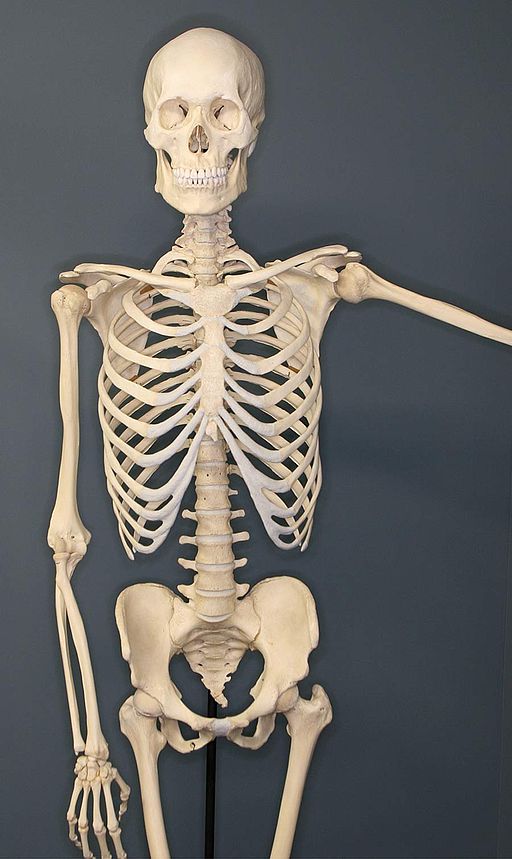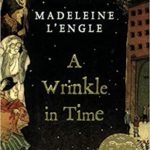Ingredients Of A Good Story
 As I see it, fiction contains two components: content, or story, and the means by which the author delivers that content–the writing itself. In a comment last week Austin Gunderson referred to these two aspects of fiction as the bones and skin. I like that analogy.
As I see it, fiction contains two components: content, or story, and the means by which the author delivers that content–the writing itself. In a comment last week Austin Gunderson referred to these two aspects of fiction as the bones and skin. I like that analogy.
I don’t think one component should be emphasized to the detriment of the other–after all, bones without skin won’t work, but neither will skin without bones. However, I think perhaps in emphasizing improved craft, we’ve forgotten about the bones. Whether on blogs or in conference writing instruction or how-to writing books, it seems to me there is much more discussion about point of view and avoiding passive verb constructions and steering clear of forms of “to be” than there is about what ingredients go into a good story.
This wouldn’t be a concern if the majority of the Christian fiction I read–most of it speculative–had engaging stories that took me on an adventure of one type or another. Essentially, as a reader, I want to live the story with the characters. That’s not happening as often as I’d like.
So here are a few ingredients I’ve identified that do, in fact, pull me into a story.
- A unique premise. Stories have been told and retold, so there’s nothing wrong with the orphan boy becoming king or the magic sword saving the day. However, a story with those familiar underpinnings needs a new and different spin. The orphan boy becomes a king and he is evil, for example. In short, a story needs to be both familiar and new.
- A character who wants or needs something from the outset. This can be something internal or external, but his awareness of his need causes him to act.
- An active character as opposed to one that is reactive. I want a character who does not sit back passively or in a defensive position, warding off attacks. I want the protagonist to make the attempt to solve his problem. He may fail or be wrong, but it is in his attempt to win, conquer, find, solve that I as a reader can cheer him on or worry over him in his struggle.
- Conflict. Something needs to stand in the way of the character achieving his desire. These aren’t random problems that assault him but should arise as a result of his efforts.
In the first a character is on his way to achieve his goal, but a swarm of bees attacks, it starts to rain, and a rock slide blocks his way. In the second, he is on his way, but doesn’t look at his map, makes a wrong turn, stirs up the swarm of bees, flees from them, runs for safety toward the river where he loses his pack in the water. In other words, his own decisions lead him into greater conflict rather than random things unrelated to his choices happening to him.
- No easy solutions. I don’t want our hero to get out of hot water too easily. He needs to struggle and perhaps even fail because easy wins generally don’t leave their mark. Hence the character goes through easy wins with little learned. He doesn’t grow or develop as a person.
The dragon assaults him, he draws his sword and pierces it in its tender underbelly. True, he won the battle, but how did he change because of it? The problems a character faces should affect him.
- Stakes that are sufficiently high. I want the events in the story to matter. If the main character fails, what will he lose? What will others lose? In good stories something valuable is on the line–if the hero fails, all will be lost, for him and for those he cares about.
- The possibility of failure. Given sufficiently high stakes, readers must actually believe the hero might lose and that the story could just as easily end tragically as happily.
- Proper character motivation. Yes, sometimes characters act in surprising ways, but there still needs to be a reason for them to act against their usual pattern of deciding and doing. Anything out of the blue, any unexplained coincidences will seem like author manipulation.
- Foreshadowing. Readers shouldn’t be blindsided but neither should they see the twists and surprises coming a mile away.
What is important to you that I haven’t included? Which of these nine matters most to you and why? And here’s the key question–which ingredient is most often missing in the Christian speculative fiction you’ve read recently (no titles necessary)?












































To me, the most important thing is characters that are three-dimensional. I can forgive (almost) any weaknesses in the plot if the characters are people I can really root for. But, in the case of plot, I think it’s essential to have that possibility of failure, and that if the failure occurs, it would be well, epic. If it’s an easy fix, that doesn’t equal too much risk. If I don’t feel that risk, it’s easier to put the book the aside unfinished. I don’t mind a familiar plot, though. Basically, though, no matter how great the plot is, if I don’t care about the characters, it’s going to be a flop.
I don’t want perfect characters. I want characters that are real. The have hopes and fears and desires and failures. Recently, I read a Christian speculative novel where the hero fulfilled these characteristics, but the heroine . . . Well, she was the Proverbs 31 woman in the flesh. I don’t have anything against the Proverbs 31 woman, but no woman fulfills all those attributes. I know I don’t. 🙂
It was frustrating, and made an otherwise well-written book difficult to finish. In fact, I realized that while the male characters were three-dimensional, the female characters were all either Proverbs 31 or Jezebels.
So, for me characters trump just about everything else.
Lauren, I agree with what you’re saying. A story needs good characters–ones we can relate to and who we care about.
To be clear, they are an ingredient in the story. But by themselves, they aren’t enough. A description of a good character, no matter how cool or intriguing or quirky, will simply be a character sketch, not a story.
To be a story, those characters must act. They must want something and they must go out to achieve something to satisfy what they want.
But yes, I think they are a story ingredient and would have made a nice number ten. Thanks for adding them. 😉
Becky
I’m not sure which of these I find most important…
And maybe there is no answer, Galadriel. Great stories don’t come up short in any of these ingredients. Sort of like baking a cake. Is the flour most important? The egg? baking powder, salt, water, chocolate?
I could say, chocolate, hands down. But, without the others, there is no cake.
Becky
A recent read suffered from cohesion. The writing was interesting and the topic unique, but there was too much dissonence with the POV characters and too many plot points. The book couldn’t deliver on everything. I read one review that mentions one aspect – and I thought, “Huh, that didn’t stick with me as a major point.”
The voice is a big deal for me. I’ll confess to reading (and enjoying) the Twilight series because I enjoyed Stephenie Meyer’s voice, not because the prose was high-caliber.
And now I’ll be handing in my discerning reader card. *sigh*
Interesting, Jason. Too many plot points. I’ve read stories before that seemed to be trying too hard with the surprises. The plot became convoluted. I think that happens when the character’s actions aren’t driving the story. It should be all about what he wants and the things that keep him from getting it. When he achieves or fails for the last time, then the story is over.
Other stuff in the form of subplots can be there but they must reinforce not detract from the central plot.
Voice, I’d probably include with writing as opposed to story telling. It has more to do with how the story comes out as opposed to what comes out.
Now that could become another post–what do writers need to include if they are to tell a story well.
Becky
Aw, shucks. Thanks for the shout-out. 😉
That is an excellent checklist you’ve compiled. I heartily agree with everything on it.
At the risk of oversimplification, I think I can sort each of your points into two separate categories, and those are: (A) the nature of the protagonist(s) and (B) the nature of the antagonist(s). Into the former I’d place points 2, 3, and 8, and into the latter I’d cram points 1, 4, 5, 6, 7, and 9. Points 1 and 9 concern general plotting more than antagonism specifically, yet I group them with those others because stories are always driven by conflict, which is always driven by sin of some kind, which always counts as an ultimately antagonistic force (or should).
The nature of the protagonists is important because, if I as a reader don’t love – or at least respect – them for one reason or another, I’ll end up hating the whole ball of wax that is the story. And almost nothing kills my respect for a given character more than that character’s passivity. This doesn’t mean I can’t love characters who do nothing but sit around all day; I’m not talking about physical action, but action, period. To capture my fascination, a character must think ahead, make plans, and then execute those plans on his or her own initiative. As you said, it doesn’t matter so much whether those plans turn out to be right or wrong, flashes of genius or epic facepalms, or whether they lead to utter failure or total victory. What matters is that the character makes a concerted effort to determine his or her own destiny. Anything less and I feel like I’m watching a buoy bobbing in the surf.
The nature of the antagonists is important because, if I as a reader don’t fear them (whether they be men, beasts, the elements, or the inclinations of the protag’s own heart), I’m likely to fall asleep. I won’t stay up into the wee hours, huddled bug-eyed over words on a page, unless I have no earthly idea how goodness can possibly triumph. Perhaps I’m painting with too broad a brush, but fantasy and sci-fi don’t tend to be kind toward low-stakes stories. Speculative readers tend to want reality writ large, and reality itself doesn’t tend to be very convenient. This is an area in which it’s almost impossible for a storyteller to overdo things.
But here we must address a common misunderstanding: a bigger dragon is not necessarily indicative of higher stakes. Consider The Screwtape Letters. It’s in the little things that the real danger lurks – not in the things we can see coming a mile away. This is why Michael Bay movies can be so huge, yet so humdrum – they’re all shock and awe with little in the way of genuine dread. Know what’s scarier than a big dragon? A smart one. That’s the kind of antagonist that’ll prevent our hero from finding simple solutions. And that’s the kind of story that’ll get me worried for its outcome.
Regarding complex characterization: the strength of a novel vis-a-vis cinema is its ability to explore a character’s thoughts. With that in mind, no central character in a novel should ever take up residence in Flatland. Admittedly, this is an area in which I struggle as a writer. When I revise my own writing, I nearly always find myself expanding the internal monologues (or dialogues) of my characters. Things I was confident I’d conveyed the first time around prove totally absent from my manuscript when I give it a second look after a week’s distancing. When I’m inside my characters heads while writing, I tend to assume that their thoughts get translated by their actions. Nope. Gotta put those thoughts on the page.
“it seems to me there is much more discussion about point of view and avoiding passive verb constructions and steering clear of forms of “to be” than there is about what ingredients go into a good story.”
Right on, Rebecca and amen. What makes a good story? Beats me, but I know it when I read it! Your 9 points are excellent…how about this one: great dialogue. Just adds something magical to story and character.
My .02…
I’ve recently been studying the theory of the Monomyth in a science fiction class. These nine points express a lot of the same characteristics as the Hero’s Quest outline of the Monomyth.
In particular, this corresponds almost exactly to my professor’s notes on the monomythic Hero:
My professor says that a monomythic Hero is one “from whom something has been taken” or who senses that something important is lacking in his or her society. I don’t think the awareness of a deep wrongness is necessarily the first step forward from the perspective of the plot. However, I do think the first qualification for any Hero — whether Monomythic or Messianic — is a unique perception of evil and pain and sin, while everyone else is content to go blindly along with life.
To this I also give a hearty amen!
The need to define this is based on transcendent truth: why do we need (not only “could use during spare time”) great stories? And why fantastic ones in particular?
To some extent, the answer to what makes a great story? leans very close to I’ll know it when I see it. To this day, my past-tense guilty pleasure remains Frank Peretti novels, which break all the point-of-view rules, and the Left Behind series, which strictly adhere to POV but have (especially in their later volumes) choke-constricted creativity when it comes to imagining and describing fantastic events. Joel Rosenberg end-times thrillers, too, they’re all over the place, but they’re fun to read. I would not, however, describe the end-times books as more transcendent.
So exactly what makes a great story is hard to quantify, though I think Becky has done wonderfully approaching it with her above points.
Sometimes it’s easier, I think, to say what makes a bad story. Or one that isn’t even bad, but is worse: nondescript. I must admit, I am reading such a novel now. This is a published novel, found in the Speculative Faith Library, which some months ago I downloaded as a free e-book. The premise was interesting, but that’s about it; the characters are dull, the pace redundant and predictable. And you just know at the end you’ll find the un-surprising Surprise that someone turns out to be someone’s long-lost father/daughter who has been Hiding His/Her Past. Moreover, the novel’s entire focus is non-Christians, who are constantly being told (along with the reader) that blind faith in God is man’s chief end, along with other “folk theology” slogans. These drag a story. And they’re usually coupled with the poorer stories.
(I’m afraid this novel may need to be my first negative review on Spec-Faith, but I’m not sure if I want to attach my name to said review! Thus tomorrow’s poll …)
You’ve got some really great points! I’ll need to refer back to some of those as I write my own story.
I agree with what you said about characters needing to act, not just react, but I’ve also seen this go too far the other direction a lot. I get annoyed by characters who dash about doing things all the time, without thinking about them first. They tend to walk head-first into every mysterious or dangerous situation just to drive the plot. (Think Star Trek- ‘Look, it’s an unknown nebula or abandoned ship! Let’s explore it!’) This kind of stupid character seems to me to be more popular in literature today than the passive kind.
All of the nine elements listed stand out as essential to my enjoyment of a tale. Proper character is probably most important in my mind, however. People fascinate me because of seeing their motivations play out in how they act. Some fictional characters, however, drive me insane because the author gives no motivations for why they act the way they do; it feels like the character makes its choices entirely to fit the author’s pre-outlined plot, even if it’s out of character to make those decisions.
I also find that I must agree with, or at least understand on some level, the characters’ moral/ethical decisions. As an example, I just read a popular ‘secular’ trilogy. While I liked most of the characters at the beginning, by the last book I disliked all of the surviving characters, most of them because I couldn’t agree with or even justify their decisions.
Another thing not explicitly mentioned here that I find necessary is a driving force behind the plot. This ties slightly into both foreshadowing and conflict. The story needs a direction, a purpose which the reader knows that when that purpose is fulfilled, that conflict is solved, then the story can end satisfactorily. For instance, The Lion, the Witch, and the Wardrobe – somehow or other, save Edmund/defeat Jadis. Lord of the Rings – throw the Ring into Mt. Doom. While the goal doesn’t necessarily need to said that bluntly, the readers should be aware of it at least on a subconscious level. Even in character driven stories, there should be some vague idea of what the character needs to change or learn. The Empire Strikes Back – Luke needs to become a Jedi (character change), which it turns out requires learning about himself and Darth Vader. The plot needs a direction that it’s headed toward, not simply rambling and leaving me as the reader wondering, “Where is this going?”
I think that’s part of why some stories have unsatisfactory endings – because the author didn’t make it clear where the story was going, the reader concluded the story was going somewhere different than the author’s resolution. Thus the readers are dissatisfied, and the author can’t figure out why when the ending makes perfect sense to him.
I also highly agree with Austin’s breakdown of it into the nature of the protagonist and the nature of the antagonists. However, I would make a completely separate category, “plotting”, in which to put 1 and 9, since I don’t think those exactly fit into either the protagonist or antagonist’s natures.
For that matter, I almost question putting foreshadowing into a discussion of plotting at all. It seems more related to the technical ‘skin’ of writing. It’s not the plot itself that is missing with foreshadowing’s absence; it almost seems more like a flaw in the writing rather than in the story.
All of them? I find the most problematic absence is Proper Character Motivation, and subordinately No Easy Solution. With realistic motivation, the characters actually become compelling instead of overly-perfect or overly-evil, one-dimensional, uncompelling characters. And if I like the characters, if I get to see them grow as they deal with only having difficult solutions, I’ll cut the author a lot of slack on other flaws.
Though, come to think of it, the Christian specfic series I dislike the most had both that as an issue and Possibility of Failure as an issue. After main characters were resurrected several different times, I stopped caring if the characters died because a) I knew they most likely wouldn’t stay dead and b) I didn’t particularly like the characters anyways, because they were flat/overly perfect and never really changed. They only seemed to have external struggles, and those external struggles carried no lasting threat.
Interesting, because for me it’s actually the reverse. I listen to podcasts and read blogs about writing, and they seem to emphasize the bones and plot, yet never explain how to craft a sentence that grips the readers’ hearts.
I had the same thought about foreshadowing, but, after further consideration, decided to interpret “foreshadowing” as “consistency” in the context of this discussion. I think what Becky was referring to was the need for a given story’s ultimate conflict or antagonist to avoid coming at the reader ‘out of left field.’ In that sense, foreshadowing is a means not only of establishing mood or suspense, but also of knitting together a plot’s internal cohesion.
This doesn’t mean that surprises are bad, but rather that they must be plausible within the previously-established story framework in order to slip past the reader’s suspension of disbelief. Example: if I’m writing a typical medieval high-fantasy epic in which our hero has stormed the gates of the Dimly-Lit Citadel, slain the Unscrupulous Enforcer with the Enchanted Sword of Moral Rectitude, and cornered the Big Bad in his throne room, your disbelief-suspension will explode if the Big Bad proceeds to whip out a phaser cannon and start blasting away. Not only would this come as a surprise, it also wouldn’t make any sense to you. As an author, I would’ve shattered the verisimilitude of my world.
Now, this reaction on your part wouldn’t be due to my genre-blending antics, but rather to the fact that I hadn’t prepared you for them. It’d have been sufficient had I dropped a veiled hint every so often that the Forces of Darkness were burning the candle at both ends concocting strange weaponry in their fortified laboratory, or that they’d opened a magical portal to a world of lights and noises and machines, or something equally crazy. That’s the kind of foreshadowing I think Becky was talking about: the kind that protects readers from undesirable whiplash.